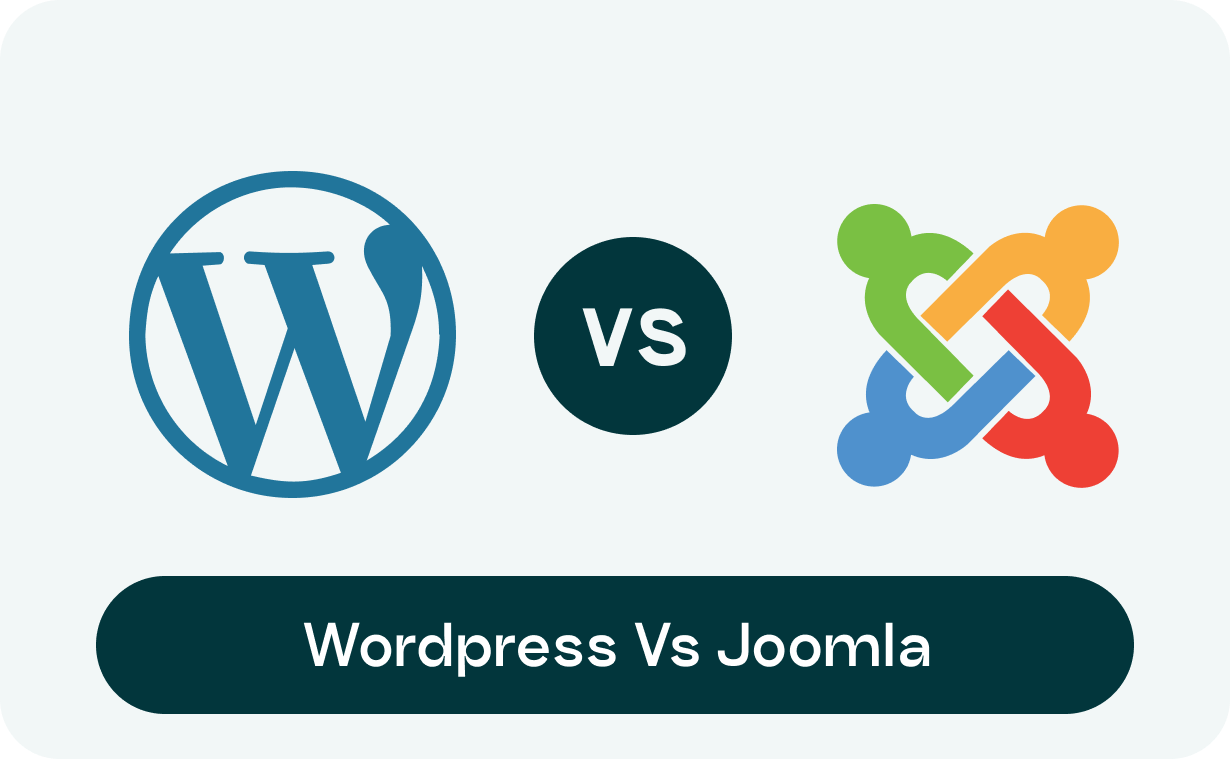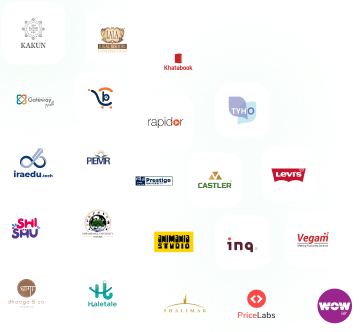Table Of Content
WordPress vs Joomla: A Comprehensive Comparison for 2025
WordPress vs Joomla - Choosing the right content management system (CMS) is a critical decision for anyone looking to build a website. With so many options available, it can be challenging to determine which platform best suits your needs. Two of the most popular CMS platforms are WordPress and Joomla. Both have their strengths and weaknesses, and understanding these can help you make an informed decision.In this article, we will delve deep into the features, usability, flexibility, and SEO capabilities of WordPress and Joomla. By the end of this 2500-word guide, you should have a clear understanding of which CMS is the right fit for your website.
Introduction to WordPress vs Joomla
WordPress
WordPress is the most popular CMS in the world, powering over 40% of all websites on the internet. It was initially launched in 2003 as a blogging platform but has since evolved into a versatile CMS capable of handling various types of websites, from blogs to e-commerce stores.WordPress is open-source, meaning it is free to use and modify. It is known for its user-friendly interface, extensive plugin ecosystem, and robust community support. WordPress is highly customizable, making it suitable for both beginners and advanced users.Joomla
Joomla, launched in 2005, is another open-source CMS that powers around 2% of all websites. It is known for its flexibility and robustness, making it a popular choice for more complex websites. Joomla is often considered a middle ground between WordPress and Drupal, offering more advanced features than WordPress but with a steeper learning curve.Joomla is highly extensible, with a wide range of extensions and templates available. It is particularly well-suited for websites that require complex content structures, such as social networks, online magazines, and e-commerce sites.Ease of Use
WordPress
One of the main reasons for WordPress's popularity is its ease of use. The platform is designed with beginners in mind, offering a straightforward and intuitive interface. The dashboard is clean and easy to navigate, with clearly labeled sections for posts, pages, media, and settings.WordPress uses a block-based editor called Gutenberg, which allows users to create content using drag-and-drop blocks. This makes it easy to add text, images, videos, and other elements to your pages without needing to know any code.For those who prefer a more traditional editing experience, WordPress also supports classic editor plugins. Additionally, there are numerous page builder plugins like Elementor and Divi that offer even more flexibility and ease of use.Joomla
Joomla, on the other hand, has a steeper learning curve. While it is not overly complicated, it is generally considered less user-friendly than WordPress. The dashboard is more complex, with a wider range of options and settings that can be overwhelming for beginners.Joomla uses a more traditional editor, which requires a bit more technical knowledge to use effectively. While it does offer some drag-and-drop functionality through extensions, it is not as seamless as WordPress's Gutenberg editor.That said, Joomla's complexity can be an advantage for more advanced users who need greater control over their website's functionality and structure. However, for beginners, the learning curve can be a significant barrier.Customization and Flexibility
WordPress
WordPress is renowned for its flexibility and customization options. The platform offers thousands of free and premium themes that allow you to change the look and feel of your website with just a few clicks. Additionally, WordPress's extensive plugin ecosystem allows you to add virtually any functionality to your site, from SEO tools to e-commerce capabilities.WordPress's open-source nature means that developers can create custom themes and plugins tailored to specific needs. This makes it an excellent choice for businesses and individuals who require a highly customized website.Joomla
Joomla is also highly customizable, but it offers a different approach. While WordPress relies heavily on plugins for additional functionality, Joomla uses extensions, which include components, modules, and plugins. This allows for more granular control over your website's features and functionality.Joomla's flexibility makes it a strong contender for complex websites that require advanced content structures and user management. However, this flexibility comes at the cost of a more complex setup process, which may not be ideal for beginners.Themes and Templates
WordPress
WordPress offers a vast library of both free and premium themes. These themes are easy to install and customize, with many offering drag-and-drop functionality through page builders. Whether you're looking for a simple blog theme or a sophisticated e-commerce template, you're likely to find something that meets your needs in the WordPress theme directory.Additionally, many premium themes come with built-in customization options, allowing you to tweak colors, fonts, layouts, and more without needing to write any code. This makes it easy to create a unique and professional-looking website.Joomla
Joomla also offers a wide range of templates, both free and premium. However, the selection is not as extensive as WordPress's. Joomla templates are generally more complex and offer greater flexibility in terms of layout and design. This can be an advantage for advanced users who need a highly customized website, but it can be overwhelming for beginners.Joomla templates often come with more advanced features, such as built-in support for multiple languages and complex menu structures. However, customizing these templates typically requires a deeper understanding of Joomla's structure and coding.Plugins and Extensions
WordPress
WordPress's plugin ecosystem is one of its strongest features. With over 58,000 plugins available in the official WordPress plugin directory, you can add virtually any functionality to your website. Whether you need SEO tools, social media integration, e-commerce capabilities, or security enhancements, there's likely a plugin for it.Plugins are easy to install and configure, making it simple to extend your website's functionality without needing to write any code. Additionally, many premium plugins offer advanced features and dedicated support, making them a good investment for businesses and serious website owners.Joomla
Joomla's extension ecosystem is also robust, but it is not as extensive as WordPress's. Joomla offers around 8,000 extensions, including components, modules, and plugins. These extensions allow you to add a wide range of functionality to your website, from e-commerce to user management.However, Joomla's extensions are generally more complex to install and configure than WordPress's plugins. This can be a barrier for beginners, but it offers greater flexibility for advanced users who need more control over their website's functionality.SEO Capabilities
WordPress
WordPress is widely regarded as one of the most SEO-friendly CMS platforms available. The platform is designed with SEO in mind, offering clean code, fast loading times, and easy integration with popular SEO plugins like Yoast SEO and All in One SEO Pack.These plugins provide a range of SEO tools, including meta tag optimization, XML sitemap generation, and content analysis. Additionally, WordPress's extensive theme and plugin ecosystem allows you to further optimize your website for search engines.Joomla
Joomla also offers strong SEO capabilities, but it requires more manual configuration than WordPress. The platform includes built-in SEO features, such as customizable URLs, meta tags, and alt text for images. However, to fully optimize your website, you may need to install additional extensions like SH404SEF or EFSEO.While Joomla's SEO capabilities are robust, they are generally considered less user-friendly than WordPress's. This can make it more challenging for beginners to optimize their websites effectively.Security
WordPress
WordPress is a secure platform, but its popularity makes it a frequent target for hackers. However, the platform's large community means that security vulnerabilities are quickly identified and patched. Additionally, there are numerous security plugins available, such as Wordfence and iThemes Security, that can help protect your website from threats.To enhance security, it's essential to keep your WordPress installation, themes, and plugins up to date. Additionally, using strong passwords, enabling two-factor authentication, and regularly backing up your website can further reduce the risk of security breaches.Joomla
Joomla is also a secure platform, with a strong focus on security. The platform includes built-in security features, such as two-factor authentication and password encryption. Additionally, Joomla's security team actively monitors and addresses vulnerabilities.However, like WordPress, Joomla's security can be compromised if extensions are not kept up to date. It's essential to regularly update your Joomla installation and extensions to protect your website from potential threats.Community and Support
WordPress
WordPress boasts one of the largest and most active communities in the CMS world. This means that there is a wealth of resources available, including forums, tutorials, and documentation. Additionally, there are countless WordPress-focused blogs, YouTube channels, and online courses that can help you learn and troubleshoot.For those who need more personalized support, there are numerous WordPress developers and agencies that offer professional services. Additionally, many premium themes and plugins come with dedicated support, making it easier to get help when you need it.Joomla
Joomla also has a strong and active community, though it is smaller than WordPress's. The Joomla community offers a range of resources, including forums, documentation, and tutorials. Additionally, there are Joomla-specific blogs and YouTube channels that provide valuable information and support.For professional support, there are Joomla developers and agencies that offer services ranging from website development to troubleshooting. However, the smaller community size means that finding help may not be as easy as with WordPress.Performance and Speed
WordPress
WordPress is known for its performance and speed, especially when optimized correctly. The platform's lightweight core ensures fast loading times, and there are numerous caching plugins available, such as W3 Total Cache and WP Super Cache, that can further enhance performance.Additionally, WordPress's extensive plugin ecosystem includes tools for image optimization, database cleaning, and content delivery network (CDN) integration, all of which can help improve your website's speed and performance.Joomla
Joomla is also a performant platform, but it can be more resource-intensive than WordPress. This is partly due to its more complex structure and the additional features it offers. However, with proper optimization, Joomla can deliver fast loading times and smooth performance.Joomla offers built-in caching and Gzip compression, which can help improve performance. Additionally, there are extensions available for further optimization, such as JCH Optimize and Cache Cleaner.E-commerce Capabilities
WordPress
WordPress is a popular choice for e-commerce websites, thanks to the WooCommerce plugin. WooCommerce is a powerful and flexible e-commerce solution that allows you to create an online store with ease. It offers a range of features, including product management, payment gateway integration, and shipping options.Additionally, there are numerous WooCommerce extensions available that allow you to add advanced functionality, such as subscriptions, memberships, and bookings. This makes WordPress an excellent choice for businesses of all sizes.Joomla
Joomla also offers strong e-commerce capabilities, with extensions like VirtueMart and J2Store. These extensions provide a range of features, including product management, payment gateway integration, and order tracking.However, Joomla's e-commerce extensions are generally considered less user-friendly than WooCommerce. This can make it more challenging to set up and manage an online store, especially for beginners.Multilingual Support
WordPress
WordPress offers robust multilingual support, with plugins like WPML and Polylang. These plugins allow you to create a fully multilingual website, with support for multiple languages, translated content, and language switchers.Additionally, many WordPress themes and plugins are designed with multilingual support in mind, making it easy to create a website that caters to a global audience.Joomla
Joomla is known for its strong multilingual support, with built-in features that allow you to create a multilingual website without needing additional extensions. The platform supports multiple languages out of the box, with options for language switchers and translated content.This makes Joomla an excellent choice for websites that need to support multiple languages, such as international businesses or multilingual blogs.Cost
WordPress
WordPress itself is free to use, but there are associated costs to consider. These include domain registration, web hosting, premium themes, and plugins. Additionally, if you require professional services, such as custom development or design, these will also add to the cost.However, the overall cost of running a WordPress website can vary widely depending on your needs. For a simple blog, the costs can be relatively low, while a complex e-commerce site may require a more significant investment.Joomla
Joomla is also free to use, but like WordPress, there are associated costs. These include domain registration, web hosting, premium templates, and extensions. Additionally, if you require professional services, such as custom development or design, these will also add to the cost.Joomla's costs can be higher than WordPress's, especially if you require advanced functionality or custom development. However, for complex websites, the investment may be justified by the platform's flexibility and robustness.Conclusion
Both WordPress and Joomla are powerful and versatile CMS platforms, each with its own strengths and weaknesses. WordPress is generally more user-friendly and easier to use, making it an excellent choice for beginners and those who need a simple, yet highly customizable website. Its extensive plugin ecosystem and strong SEO capabilities make it a popular choice for a wide range of websites, from blogs to e-commerce stores.Joomla, on the other hand, offers greater flexibility and control, making it a strong contender for more complex websites that require advanced content structures and user management. While it has a steeper learning curve, its robust features and strong multilingual support make it an excellent choice for businesses and organizations with more complex needs.Ultimately, the choice between WordPress vs Joomla will depend on your specific requirements, technical expertise, and long-term goals. Both platforms offer a range of features and capabilities that can help you create a successful website, so it's essential to carefully consider your needs before making a decision.The world’s First zero commission platform
Hire tech partners effortlessly
 If you're a non-tech founder looking for an agency or a tech founder looking for engineers.
If you're a non-tech founder looking for an agency or a tech founder looking for engineers. You can get your 5 best matches from 2800 in 5 mins, with 1000 data points tracked.
You can get your 5 best matches from 2800 in 5 mins, with 1000 data points tracked. Connect directly with no credit card needed!
Connect directly with no credit card needed!
You’re just a click away from the best talent.


